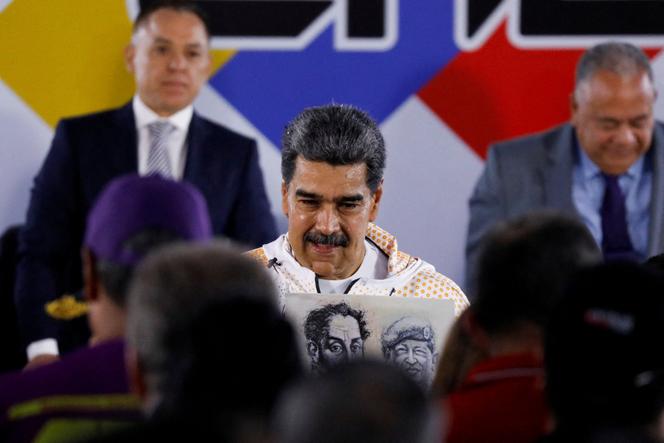
On Tuesday, April 9, during an official visit to Caracas, Colombian President Gustavo Petro called for “political peace in Venezuela.” The political situation in Venezuela is tense as the campaign for the July 28 presidential election progresses. President Nicolas Maduro's government, which is seeking his third term in office, appears determined not to budge. Meanwhile, the opposition party is suffering from internal divisions.
The agreement, commonly known as the Barbados Agreement, signed by representatives from both sides in October 2023 as a step towards free and fair elections, is under severe strain. However, 80% of Venezuelan voters say they are determined to vote in this election, according to a major polling organization. “Abstaining is no longer an option,” summed up Luis Vicente León of the Datanalysis polling agency. More than 70% of prospective voters said they would not vote for Maduro.
However, President Maduro's photo appears 13 times on the ballot paper issued by the National Electoral Council. In addition to Mr. Maduro's own political party, the United Socialist Party of Venezuela (PSUV), 12 other political parties, more or less independent of the PSUV, have chosen Mr. Maduro as their candidate. Thirteen candidates have registered, “12 of whom are from the opposition,'' Mr. Maduro claims, but the election is open to either Mr. Maduro himself or a candidate from an opposition coalition acceptable to Chavez's government. You will win.
2 candidates lost
Original candidates for the Unified Platform (Plataforma Unitaria), PU), ultra-neoliberal and radical María Colina Machado was declared ineligible by the Supreme Court. The National Electoral Council refused to register her nominated successor, Corinna Joris. The expulsion of these two candidates caused a strong backlash on the international stage. For the first time, the presidents of Brazil and Colombia distanced themselves from their ally Venezuela. Brazilian President Luiz Ignacio Lula da Silva said: “Legally and politically, the ban on the nomination of opponents is inexplicable.” Petro condemned the “clearly undemocratic coup.” Petro's visit to Caracas sealed the fragile settlement.
Currently, two candidates are representing the PU on the ballot paper. Zuria Governor Manuel Rosales has registered as the representative of his own political party, Nuevo Tiempo, without consulting his colleagues. Edmundo González Urrutia, a little-known former ambassador and political scientist, has registered as a candidate with the support of PU leaders. Venezuela's electoral law allows political parties to change their candidates during elections up to 10 days before voting. However, the name and photo on the ballot will be those of the candidate registered on April 20th.
This article still has 48.11% left. The rest are exclusive to subscribers.

